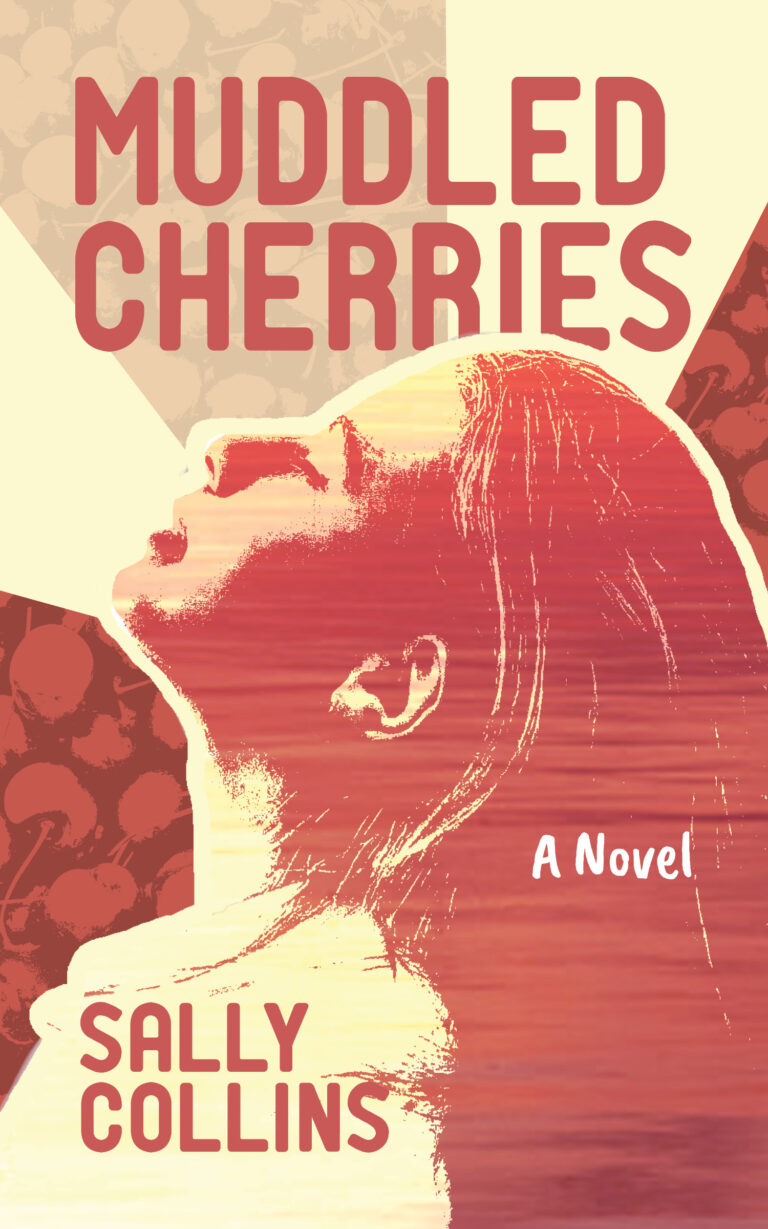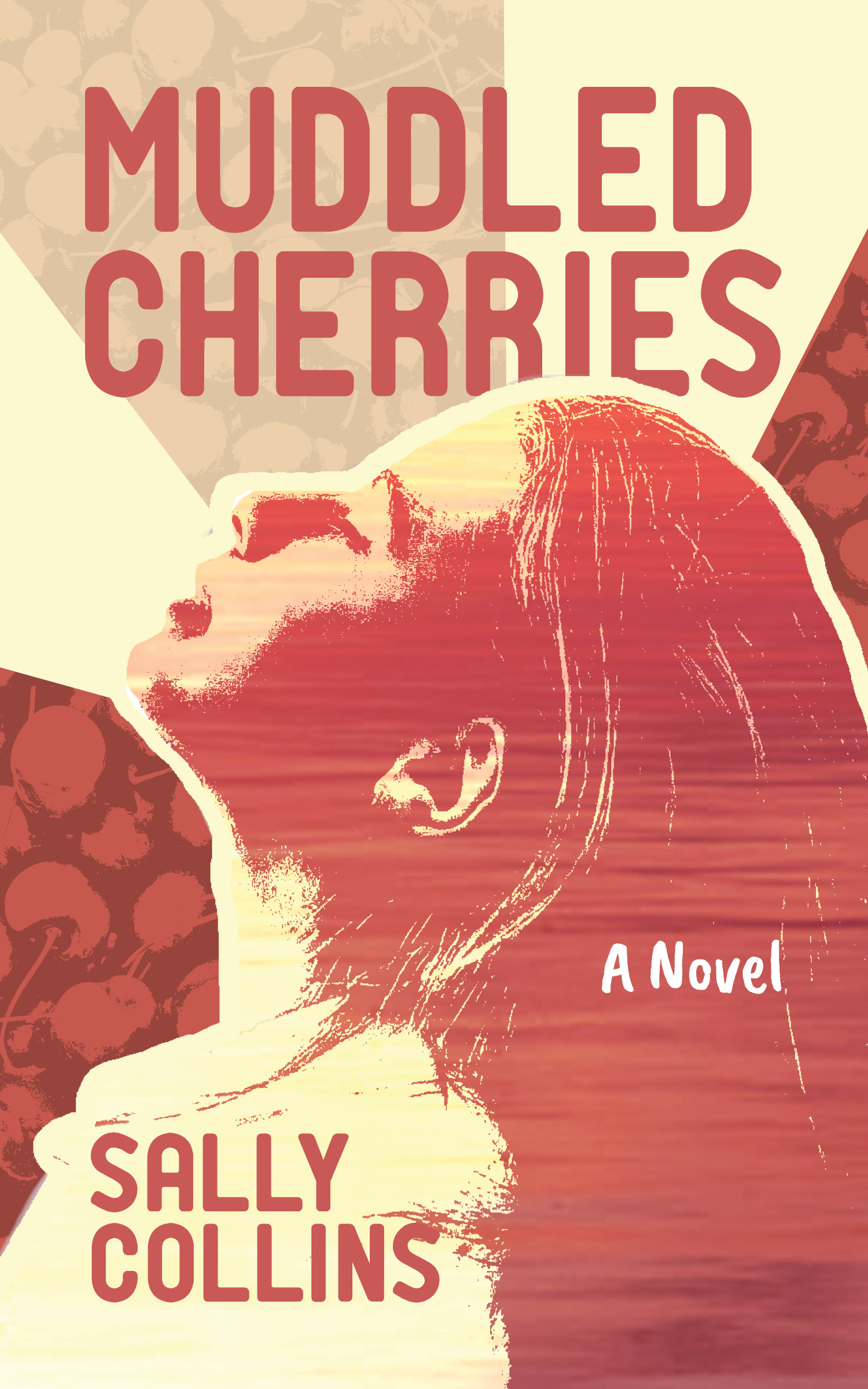Sally Collins clearly knows her way around bars and restaurants, as her debut novel MUDDLED CHERRIES illustrates. Her detailed and entertaining descriptions of The Honky Tonk bar in a small Wisconsin town capture perfectly the rhythm and flow of a busy server’s shift. And her deft portraiture continues on the pages to follow.
But the deceptively simple language turns dark quickly, mid-sentence, alerting the reader that there is more to this novel than its seemingly idyllic opening might suggest. Collins writes with a sharp eye for details and quick ear for realistic, amusing dialogue. A friend describes family photos of their farm’s prized cows: “It’s literally us standing by the cow’s ass so you can see their huge udders. They are all over the house—one of me by a cow’s ass, one of my brother by a cow’s ass, one of my mom, one of my dad, one of all of us, or two of us, or three of us. It’s so embarrassing.” Each member of her large cast rings true; even deeply flawed individuals are sympathetic.
Protagonist Emily Schmidt works in her father’s bar and lives with him above it. Since her mother abandoned them when she was a toddler, it’s been just her and her father. Dad is an alcoholic whose struggles with financial worries and unresolved anger have led to behavior bordering on abusive, however genuine his love for his daughter is.
A disturbing incident involving Emily and one of the bar’s customers is already a recent memory at the novel’s opening; an unhealthy relationship has deepened Emily’s crippling self-doubt. When her father makes yet another stupid choice, this one so egregious that even she cannot rationalize it away, she bolts, triggering the story to follow. The tale continues to engage as Emily navigates new relationships while reckoning with the storms left unresolved back home.
With its early dark turn, the novel’s primary theme quickly emerges and soon dominates the story. Women’s stories of sexual abuse in all its forms—via physical and emotional damage, whether micro or macro, by omission or commission, with ridicule or denial—need to be told, and they can be particularly effective in fiction. At one point, after she has spoken of her past experience, Emily ponders, “It feels like chewing on a thistle to say it out loud again. It’s like it…chipped off something heavy clinging to her joints and bones and brain like zebra mussels cling to a dock post.”
Following Emily’s initial assault, these stories spread like viruses through a swath of the novel’s cast. In one scene composed of short, staccato sentences, the Me-Too stories strike like relentless hailstones to great effect. But as these instances continue to pile up throughout the 400-plus page book, their impact dilutes—even becomes didactic. In the long run, fewer of these examples would have strengthened them. Some sections run long and become redundant as well, rich as they are with descriptions of people, parties, body language, attitudes, etc. Also, other short scenes treat complex issues like PTSD in veterans a bit too tidily.
Despite these drawbacks, however, MUDDLED CHERRIES is a pleasure to read and a story to savor. (Speaking of savoring, one caution: The reader might develop irresistible cravings for cherry pie.)
Author Sally Collins writes with wit and clarity, telling a coming-of-age story that is both important and entertaining in MUDDLED CHERRIES.
~Anne Welsbacher for IndieReader


